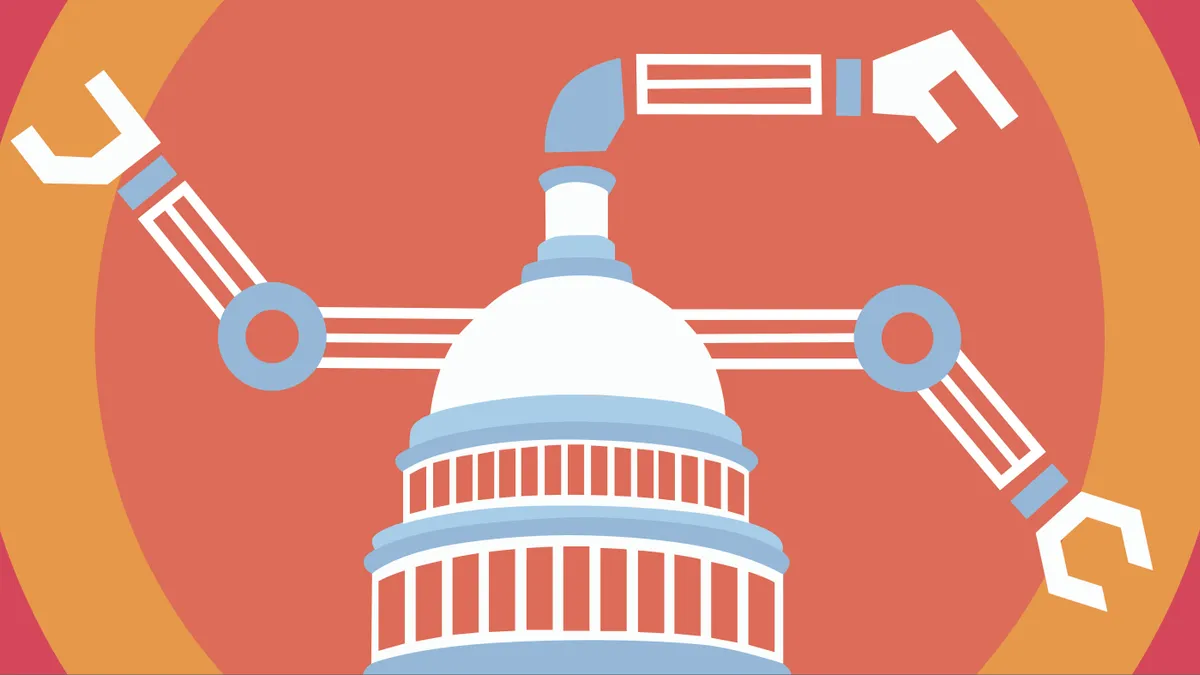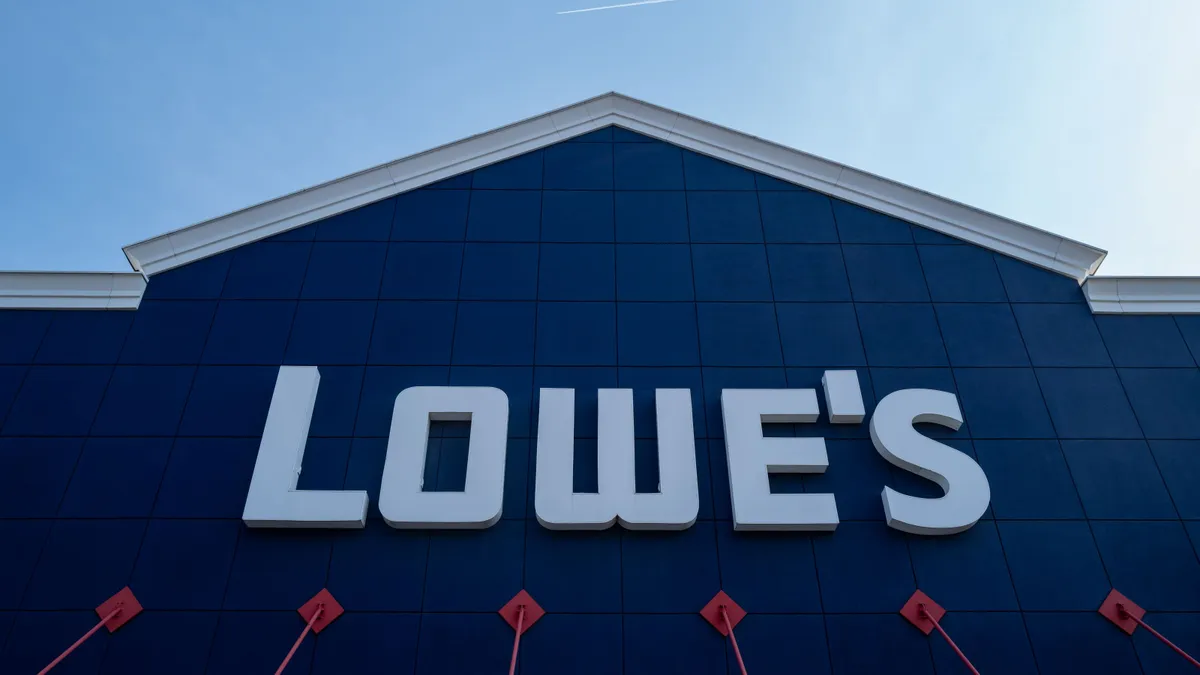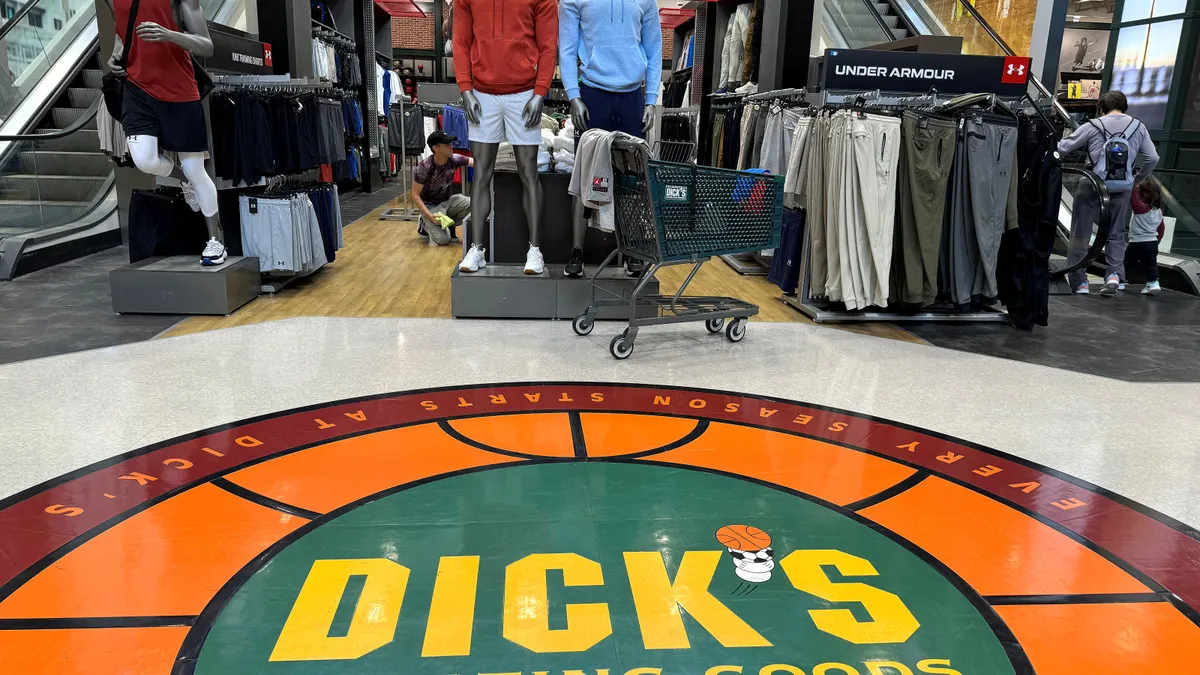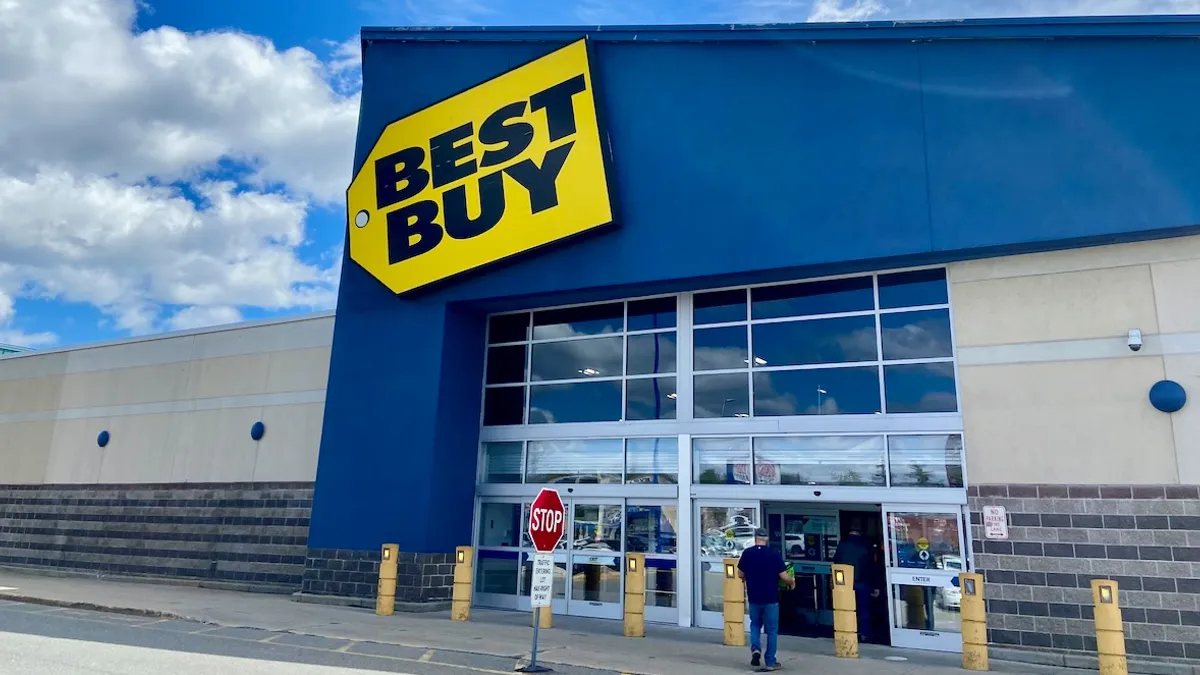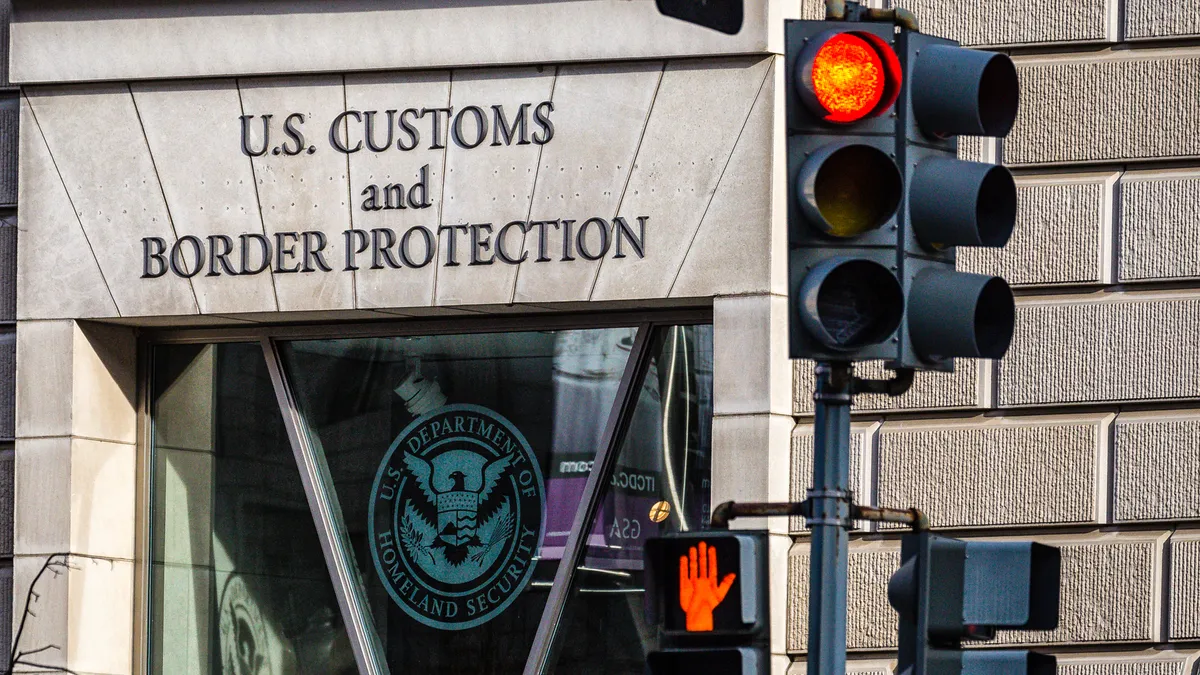Welcome to the first edition of Chain Reaction, covering all things data, technology and regulation as they apply to supply chains and logistics. Circle back to this column every week to glean the news and insight you need to understand what's happening in the world of supply chain.
Delayed: The retail apocalypse
Even though e-commerce sales soared during the holiday peak season — breaking $100 billion for the first time — those sales might get curbed: according to The Wall Street Journal, the Supreme Court is considering whether online retailers should pay sales tax.
That could give traditional retailers a leg up against e-commerce, even though retail sales performed pretty well in December 2017, according to the U.S. Census Bureau.
Retail sales increased 5.4% YoY and 0.4% month-to-month, suggesting that retailers are finally figuring out how to meet consumer demand without losing inventory.
Furthermore, CBRE reported last week that demand for warehouse space is skyrocketing, although the gap between supply and demand closed in Q4 2017.
And to remind us all that the economy is revving up, the Fed is considering raising interest rates again and the trucking industry is growing at its fastest rate in four years.
What's hot in Congress
More like what's hot in Detroit: Department of Transportation Secretary Elaine Chao told convention attendees at the North American International Auto Show that guidelines for autonomous trucks should be released by summer, POLITICO reported.
Automakers, 3PLs and the trucking industry are chomping at the bit to get autonomous trucks on American roads. Despite failing to convince lawmakers to include provisions for autonomous trucks in the AV START Act, supporters of the tech may soon get what they want.
It will be interesting to see how Trump's infrastructure bill plays into that, especially since any kind of autonomous truck will need road sensors. Right now it looks like we won't see the bill until February, but at least one Democrat is optimistic the bill will receive bipartisan support.
Speaking of infrastructure...
Transportation management software Kuebix got on the phone with Supply Chain Dive to tell us that the trucking industry is handling the capacity crunch better than expected.
To mitigate the crunch, Kuebix President Dan Clark says truckers are carrying fewer full truckloads in favor of LTL loads because — you guessed it — LTL is "more infrastructure-driven."
"LTL can manage the increases in business, but truckload is not an infrastructure-driven vertical," Clark said. "Right now there’s not enough trucks. There’s a 14:1 demand to supply ratio."
Don't 'fight the future'
After learning that most 3PLs and shippers don't think blockchain could really work for them, Supply Chain Dive consulted SaaS-provider Oracle about the future of the tech.
Despite the naysayers, Vice President of IoT Solutions Lionel Chocron and Director of Digital/Industry Solutions Anant Kadiyala both predicted blockchain and IoT will be supply chain drivers this year.
Kadiyala said blockchain will be especially instrumental in reducing counterfeit products along the supply chain.
"In pharma alone, $300 plus billion is wasted over counterfeit drugs," he told Supply Chain Dive.
He also said blockchain will help smaller companies — especially smaller suppliers — generate more cash flow. Historically, it's always been more difficult for a smaller company to get a big loan from a bank.
By setting up a smart contract with a small business via a blockchain network, a bank can more accurately gauge the company's financial health and risk and potentially lend more.
"With blockchain now there can be better transparency so banks can have more confluence in the lending process and better adjust the risk," Kadiyala said. "Blockchain can mitigate some of this friction."
Dirty data
Blockchain and IoT may be buzzy, but Chocron did say that many IoT projects fail because companies haven't really figured out how IoT can help them.
"Less than 1% of the data that is being collected through Iot sensors is being used today, and 60% of the IoT projects fail," Chocron said. "It’s not that the tech isn’t ready, it’s just the ROI isn’t measured. The last mile of the project is to bring the data back from the platform and make a decision."
Technically speaking
In other news, Ford announced plans to increase investment in its electric vehicles program to $11 billion by 2022, according to The Wall Street Journal. Meanwhile, Amazon is exploring AR headsets and CB Insights reports that traditional, industrial manufacturers are snapping up 3-D printing startups.
Looking ahead, President Trump is expected to hand down a decision on the solar trade case by Jan. 26, and the Washington Auto Show starts next week — which will feature lots and lots and lots of talk about autonomous vehicles with lawmakers.


